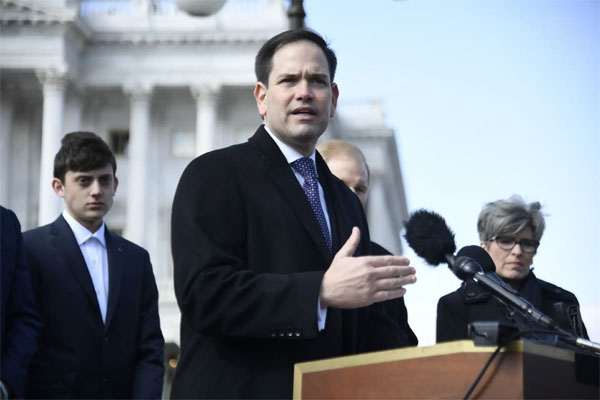Daijiworld Media Network - Washington / New Delhi
Washington / New Delhi, Sep 1: Just hours after visuals of Prime Minister Narendra Modi sharing a seemingly warm exchange with Russian President Vladimir Putin and Chinese President Xi Jinping at the SCO Summit in Tianjin began circulating widely, the United States underscored the strategic importance of its ties with India, calling it a "defining relationship of the 21st century."
In a post shared by the US Embassy in New Delhi on social media platform X, US Secretary of State Marco Rubio remarked:
“The partnership between the United States and India continues to reach new heights — a defining relationship of the 21st century. This month, we're spotlighting the people, progress, and possibilities driving us forward. From innovation and entrepreneurship to defense and bilateral ties, it’s the enduring friendship between our two peoples that fuels this journey.”

The timing of the statement raised eyebrows in diplomatic circles, coinciding as it did with widespread media coverage of Modi’s sideline interactions with Xi and Putin at the Shanghai Cooperation Organisation (SCO) Summit on Monday morning. The imagery of the three leaders in close discussion was widely viewed as a powerful geopolitical moment.
Modi Meets Putin Amid Trade Tensions with US
Following the group interaction, PM Modi held a bilateral meeting with President Putin, further cementing India-Russia ties. The engagement comes against the backdrop of escalating trade tensions with Washington.
Recently, US President Donald Trump imposed a 50% tariff on Indian goods, accusing New Delhi of "unfair trade practices" and refusing to cut back on Russian crude oil imports.
Despite mounting pressure from the West, India has continued its energy relationship with Russia. Analysts argue that India's decision to purchase discounted Russian oil has helped prevent a deeper global energy crisis, stabilising oil prices and keeping inflation in check—not just for India, but for the world.
“By maintaining steady imports of Russian energy, India has effectively acted as a shock absorber in the global oil market,” said an international energy expert. “It’s helped reduce volatility at a time of geopolitical strain.”
Russia remains one of the world's largest oil producers, accounting for 9.5 million barrels per day—roughly 10% of global output—and exporting over 6 million barrels daily in crude and refined products combined. India has emerged as a key destination for this energy flow.
High-Level Visits Ahead
While President Trump is expected to visit India in the coming weeks for the Quad Summit, details of the trip remain unconfirmed. Meanwhile, President Putin is scheduled for a state visit in December, continuing the tradition of annual India-Russia summits.
With New Delhi balancing strategic relations across Washington, Moscow, and Beijing, India’s nuanced diplomacy is once again under global scrutiny—walking the tightrope between economic interests, geopolitical realities, and national priorities.